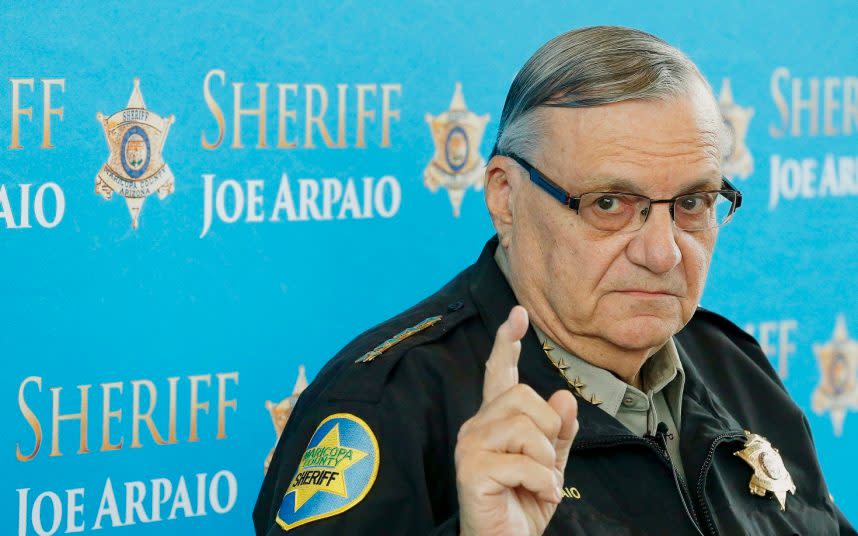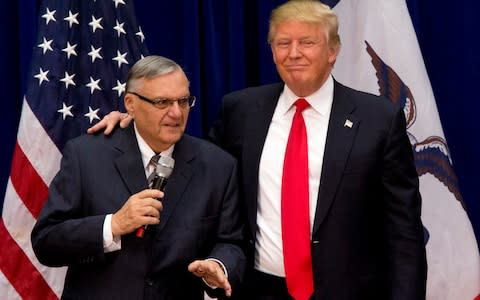Jeff Sessions 'advised Donald Trump against pardoning Joe Arpaio'

The backlash against Donald Trump’s decision to pardon a controversial sheriff intensified yesterday after it emerged that his own attorney general advised against the move and as senior Republicans lined up to condemn what they called an attack on the rule of law.
On Friday, as Hurricane Harvey barrelled in towards Texas, Mr Trump announced he was pardoning Joseph Arpaio, a political ally facing jail time for refusing to obey court orders to end police patrols focusing on Latinos in Arizona.
The White House had signalled Mr Trump’s intention in advance but no-one expected the contentious decision to be made so rapidly – before Arpaio had even been sentenced. The decision brought immediate condemnation from opponents and from members of his own Republican party.
At the weekend, the Washington Post reported that the president asked Jeff Sessions, the attorney general, in spring whether it would be possible to for the government to drop the case against Arpaio.

Mr Sessions said it would be inappropriate, according to three people familiar with the conversation.
Instead Mr Trump allowed the case to go to trial and granted clemency after he had been found guilty.
Although he is acting well within presidential powers, his predecessors have waited until the end of their terms before granting pardons. They have also generally acted only after formal requests for clemency had been made and after the applicant had demonstrated years of remorse.
In his 23 years as Maricopa County sheriff, Arpaio became known for his aggressive stance on undocumented immigrants. In 2011 he was ordered to stop detaining people solely on suspicion they were illegal immigrants but refused, insisting his tactics were legal.
He faced up to six month in jail after being found guilty of contempt of court.
Yet Mr Trump hailed him as an “American patriot” as he announced the pardon. That will have delighted a political base that voted for tougher controls on immigration, but brought an immediate backlash from senior Republicans, led by Paul Ryan, who heads the party in the House of Representatives.
“Law enforcement officials have a special responsibility to respect the rights of everyone in the United States,” said his spokesman. “We should not allow anyone to believe that responsibility is diminished by this pardon."
.@POTUS's pardon of Joe Arpaio, who illegally profiled Latinos, undermines his claim for the respect of rule of law https://t.co/2FckGtwQ2m
— John McCain (@SenJohnMcCain) August 26, 2017
The gulf between Mr Trump, who campaigned as a political outsider, and his party leadership has widened in recent weeks. The president has blamed them for failing to repeal Obamacare and for not implementing rule changes that might make it easier to pass legislation.

